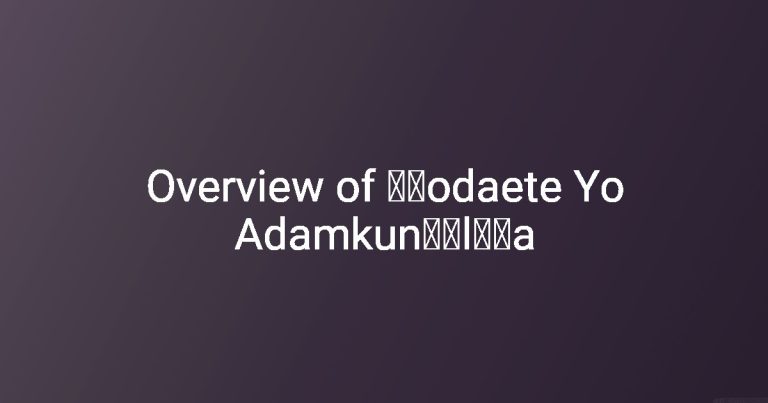The use of nicknames in relationships holds a special significance, often reflecting intimacy, familiarity, and affection. Among various terms of endearment, when a guy calls you mama, it can evoke both warm fuzzies and confusion, depending on the context and dynamics of your relationship. This nickname transcends a mere title, encapsulating deeper meanings that vary widely across cultures and personal interactions. Understanding the context surrounding this term is crucial for interpreting its intent accurately and responding appropriately.
Understanding the Term “Mama”
Cultural Context
The interpretation of the term “mama” can differ significantly across cultures.
- Latin American Cultures: In many Latin American countries, “mama” is often a term of affection, used to express endearment and closeness. It signifies warmth and familial bonds.
- African American Vernacular English (AAVE): In this context, calling someone “mama” can imply respect and warmth, often used in informal settings to show closeness.
- Southern American English: In Southern culture, using “mama” can convey a sense of comfort or familial affection, sometimes extending beyond biological ties.
These positive connotations highlight the loving and protective aspects of the term, affirming its significance in building connections.
Psychological Implications
The nickname “mama” often touches on psychological aspects of relationships.
- Motherly Role and Nurturing Aspects: The term conjures up images of care, compassion, and nurturing qualities traditionally associated with mothers.
- Relationship Dynamics: Dependency vs. Empowerment: While it can indicate a nurturing relationship, it can also highlight potential dependencies, where one partner may rely on the other for emotional support.
- The Complexity of Masculinity and Femininity: The use of “mama” challenges traditional norms of masculinity, offering a nuanced view that intertwines strength and vulnerability.
Possible Reasons Why a Guy Would Call You Mama
Affectionate Nickname
One obvious reason why when a guy calls you mama is that he considers it a term of affection.
- Sign of Endearment: This use suggests that he feels a sense of love and devotion towards you.
- Expressing Intimacy and Comfort: It could be indicative of a deep emotional connection that fosters an atmosphere of comfort and familiarity.
- Associated with Feelings of Love and Care: Such nicknames often create and reinforce intimacy in the relationship.
Playful Teasing
Calling you “mama” can also be a playful way of teasing.
- Lighthearted Banter and Humor: It might reflect a fun rapport where both partners can joke around comfortably.
- Establishing a Fun Rapport: The nickname can serve as a mechanism for building chemistry through humor.
- Playful Dominance in Flirtation: “Mama” can indicate a flirtatious power dynamic where the guy feels confident and playful.
Seeking Care or Nurturing
Another interpretation is that he may be seeking a level of care or nurturing.
- Indicating a Desire for Caregiving: It could signal his unconscious desire for someone to nurture him emotionally.
- Looking for Emotional Support: Some men might lean into this term when they feel especially vulnerable, seeking a safe space.
- Reflection of His Upbringing or Personality Traits: This often stems from childhood experiences, where nurturing was prioritized.
Symbolic of a Strong Bond
The use of “mama” can symbolize a profound emotional bond.
- Can Signify a Deep Emotional Connection: The nickname may imply that he sees you as someone he can trust implicitly.
- Trust and Vulnerability: It often indicates a willingness to show vulnerability and initiate deeper discussions about feelings.
- Commitment and Long-term Intentions: Calling someone “mama” can suggest he envisions a lasting relationship.
How to Respond When a Guy Calls You Mama
Assess Your Feelings
When a guy calls you “mama”, it’s essential to assess your feelings regarding the nickname.
- Consider Your Comfort Level: Are you comfortable with this nickname, or does it evoke unease?
- Reflect on Your Feelings About the Relationship: Does it align with how you feel about the person and where you see the relationship heading?
Gauging His Intentions
Understanding the context in which he uses “mama” provides valuable insights.
- Analyze the Context: Is he calling you “mama” during an intimate moment, or is it casual banter?
- Evaluate His Body Language and Tone: Tonality often offers clues about genuine affection versus playful teasing.
- Discuss with Friends for Perspective: Sometimes, it helps to get an outside view to assess the situation better.
Setting Boundaries
If you find the term uncomfortable, setting boundaries is vital.
- Expressing Your Thoughts if Uncomfortable: Honest communication is key; let him know how you feel about the nickname.
- Suggestions for Alternative Nicknames: Perhaps suggest other affectionate names that resonate better with you.
- Importance of Mutual Respect in Communication: Open dialogue fosters an environment where both parties feel valued and heard.
Positive Interpretations of Being Called Mama
Feminine Empowerment
Being called “mama” can symbolize feminine empowerment.
- Embracing Nurturing Roles in Relationships: This term allows women to own their nurturing sides while maintaining strength.
- Redefining Traditional Gender Roles: It challenges conventional notions of masculinity and femininity.
- Strong Womanhood and Leadership: Acknowledges that strength and caring can coexist in a healthy relationship.
Relationship Growth
The use of “mama” can also spur relationship growth.
- Building Deeper Emotional Connections: Offers a platform for more meaningful conversations.
- Encouraging Open Dialogue About Feelings: Facilitates discussions on feelings and responsibilities in the relationship.
- Fostering a Healthy Balance in Care and Support: Helps identify and establish a healthy care dynamic.
Negative Interpretations of Being Called Mama
Potential Red Flags
While most interpretations are positive, there can be negative connotations as well.
- Signs of Unhealthy Dependency: If his neediness is overshadowing the relationship, it may indicate dependency issues.
- Patronizing Undertones: In some cases, “mama” can come off as condescending, questioning one’s capabilities.
- Possibility of Manipulation or Control: If he uses the term to exert control, it could signal deeper issues in the relationship.
Miscommunication Concerns
Miscommunication surrounding nicknames can hamper relationships.
- Issues Arising from Assumptions: Assuming the meaning behind the term can lead to misunderstandings.
- Misinterpretations of Intention: The context may vary, leading to potentially hurt feelings.
- Navigating Mixed Signals in Relationships: It’s crucial to clarify meanings to avoid confusion.
Conclusion
The term “mama” significantly highlights the nuances in your relationship dynamics. Analyzing your feelings, understanding context, and communicating openly can transform how you perceive this nickname. Whether taken affectionately or interpreted cautiously, navigating this relationship vernacular enriches the experience and showcases the complexity of human interactions.
| Aspect | Positive Interpretations | Negative Interpretations |
|---|---|---|
| Cultural Context | Affectionate across various cultures | Can be patronizing in some scenarios |
| Psychological Implications | Nurturing roles foster intimacy | May indicate dependency issues |
| Relationship Dynamics | Deepens emotional connections | Can lead to mixed signals |
FAQs
- What does it mean when a guy calls you mama? It can signify affection, playfulness, or a desire for care.
- Is it appropriate to call someone mama? It often depends on your relationship with the person and the comfort level.
- Can “mama” have negative implications? Yes, it can signify dependency or be perceived as patronizing in certain contexts.
- Should I be concerned if a guy calls me mama? Consider his intentions and the context in which he uses the term; open communication can clarify any concerns.
- How can I respond if I’m uncomfortable with the nickname? Set clear boundaries and express your preferences for other nicknames.
- Does calling someone mama indicate a serious relationship? It can, as it often reflects deeper emotional intimacy and commitment.



